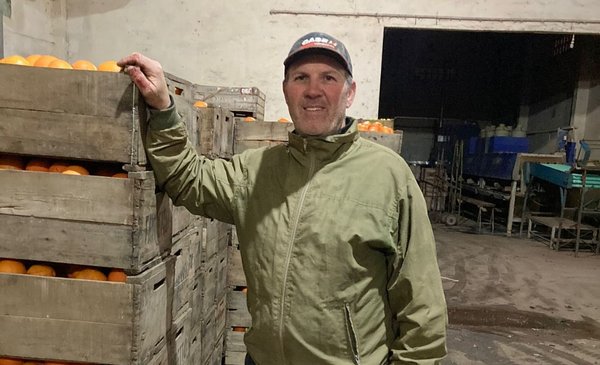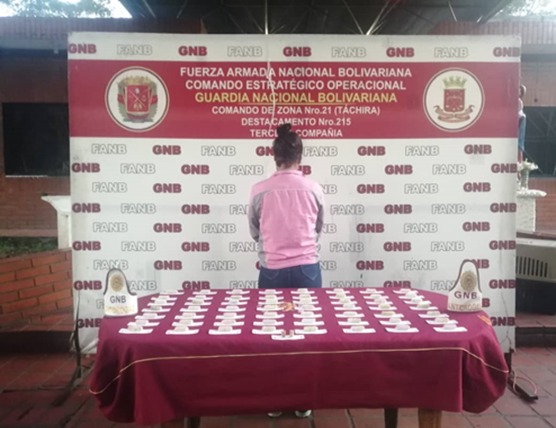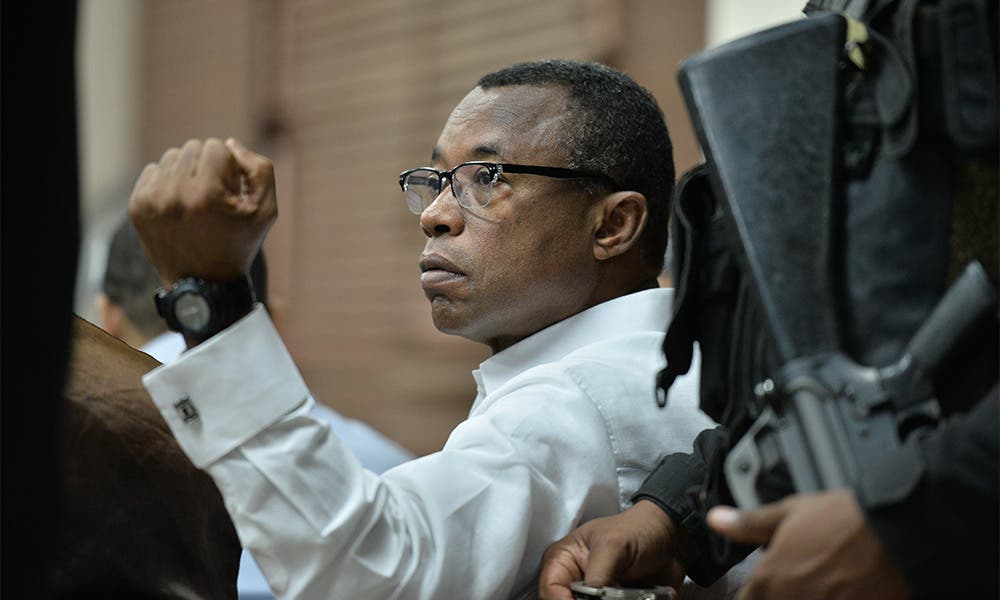As he did before in the field, Gabriel Favretto is following in the footsteps of Luis, his father, when he assumed the presidency of the Association of Agricultural Producers of Canelones. (APAC).
“I hadn’t thought about it, but the veterans wanted yes or yes a renewal, to grab younger people and they convinced me”, he counted.
“I was never a leader, I do have a lot of knowledge of APAC because my father was president, I accompanied him to meetings and meals; what I hope now is to be able to do it well”, he expressed.
Something good is that managers with more experience, those who had been leading the union (including his father), “They will be close behind me, so that I can consult them and to watch me in case I mess up”he said smiling.
He also took into account that there are few people who can and want to work in the union, which demands a lot of time when that is what is usually lacking to fulfill work and things at home; “Someone had to grab, I didn’t want to but having that support I felt I had to lend a hand and I accepted them,” she admitted.
Gabriel is 46 years old and is part of a family where his parents continue to work in fifth jobs and others, as do he and his four brothers. The family business develops wine, fruit and horticulture productions.
In the fifth there are mountains with apple trees, part of the grapes from the vineyards are sold for consumption as fruit and with the other part wine is made in their own winery and in the fifth they also work on various horticultural items, including onions, carrots , leek, pumpkin and melon, merchandise that is marketed in its own stall in the Metropolitan Agrifood Unit (UAM).
Gabriel and a brother work in the farm, one of the sisters is a winemaker, another is in charge of marketing and the other is an agricultural engineer..
“On my father’s side the one who started the vineyard was my grandfather and on my mother’s side they were the ones who had the winery”he detailed, proudly pointing out that the fourth generation is already around the corner. She has three children: the youngest is in school, the eldest is about to graduate as an accountant, and the middle boy already works in the fifth. “We have to see if he continues … but he is 18 years old and is already lending a hand,” she said.
In the fifth, the strategy is to bet on different items.
The fifth is in Costas de Pando8 km from that city, between the Sauce and Pando streams, on their own land, but also he rents a field to raise some cattle, an activity that his mother is in charge of.
The moment of the farmer, he defined, “is quite difficult, because the inputs have risen absurdly, everything that is fertilizers, seeds, fuel too, but the products in the market are worth the same as they were 10 years ago.”
It is common, he stressed, that at different times of the year there are items in which the income “at most gives to tie” or directly “works at a loss”.
Given that reality, The strategy that their parents instilled in the five brothers is fundamental and that many farmers have as something that is not negotiated: bet on production in various areasso that, as always, someone fails and causes losses, another can do well and allow costs to be covered, investments to be made to continue, and families to be supported.
“My old man was putting that together, sometimes the apple fails but the vineyard went well, for example,” he said, to later ensure that people who have only one item are very exposed, as happened last year when onions had a price very depressed and they worked totally at a loss.
This year, he mentioned by way of example, “the carrot for two or three months was fine, now the price fell in such a way that we did not cover the coststhe apple that we have in the cold we are seeing the prices to put it up for sale and I don’t know if we get the money we spent on it, there was a very important production and I don’t know why it doesn’t sell well in the market”.
For a box of 20 kilos of “good” apples, about $500 is achieved. And that is barely enough to cover the cost, something that of course is not achieved with apples of lower quality.
To Gabriel, like so many in the farming sector, it happens to him that to avoid at least more expenses it is not worth taking certain merchandise to the UAM and the production ends up being used for the cows that his mother raises to eat. “If the sweet potato is not worth selling, we give them sweet potatoes, sometimes the cows eat carrots or we give them the apples that are not worth selling,” he said.
The alternative, in a limited internal market and in which the demand is far from growing, would be to export or an internal industrial activity that increases the use of national fruits, but both are still activities that do not provide the ideal relevance.
Gabriel mentioned another case, that of the lemon, which is a fruit that has an outlet abroad, but this year due to climatic and/or production factors it is not the right size, which limits exports, resulting in a massive supply to the local market, with the consequent drop in prices.
Although he only became president –on Friday, July 8–, Gabriel said that when possible and appropriate, it seems important to him to be in contact with the authorities, for example the Ministry of Livestock, Agriculture and Fisheries (MGAP), in order to consider what can be done to find solutions to the different problems of the farmer.
One of the focuses should be, he admitted, on seeing how sales can be improved.
“I don’t know if it’s an issue that goes through education… The other day I was in the market and we were just talking about how this or that singer is coming to the country and there are people who find it very easy to go and buy a $2,000 ticket for the recital, the tickets sell out right away and it’s not that that’s wrong, but at the same time those people complain because the kilo of this or that fruit or vegetable went up $10”, he mentioned, “with how important it is for the farmer but also for people to eat healthy”.
Also, “Right now, at this moment, prices in general are all low, but little is still sold”.
What seems very good to him, which he has seen because it happens to him with his young daughter, is that in schools children are given fruit. “That’s a good path,” he stressed.
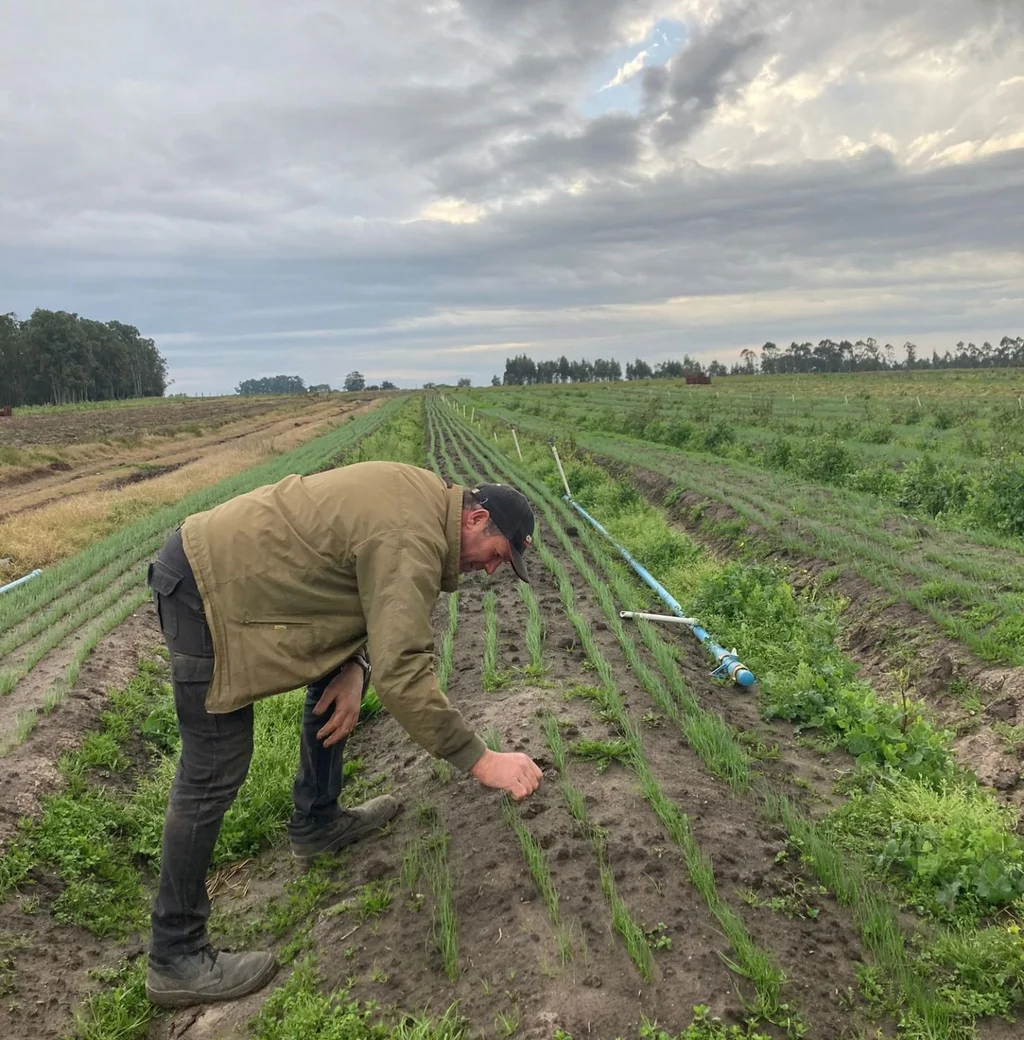
For the farmer it is not new that there are items that give losses and only allow a tie.
The good and the bad of the UAM
Asked about how he sees the activity at the UAM, a year and a half after the start of management at the new fruit and vegetable wholesale marketing center, Gabriel highlighted that APAC is represented in this area by Luis Kurdziel.
“The UAM, personally, is a change that I see very well because we have better conditions for those who are going to sell and for those who are going to buy, to workI am talking about comfort, space, cleanliness, the different services, but at the same time we see that there are problems for the producers, especially for the boys, due to the issue of the costs that must be paid”, he explained.
Another difficulty that he appreciates, he indicated, “is that one sees that there are fewer people who are going to buy, in relation to the old marketthere are a lot of vendors or small vendors who went and bought from eight to 10 packages and we are not seeing those people who moved day by day”.
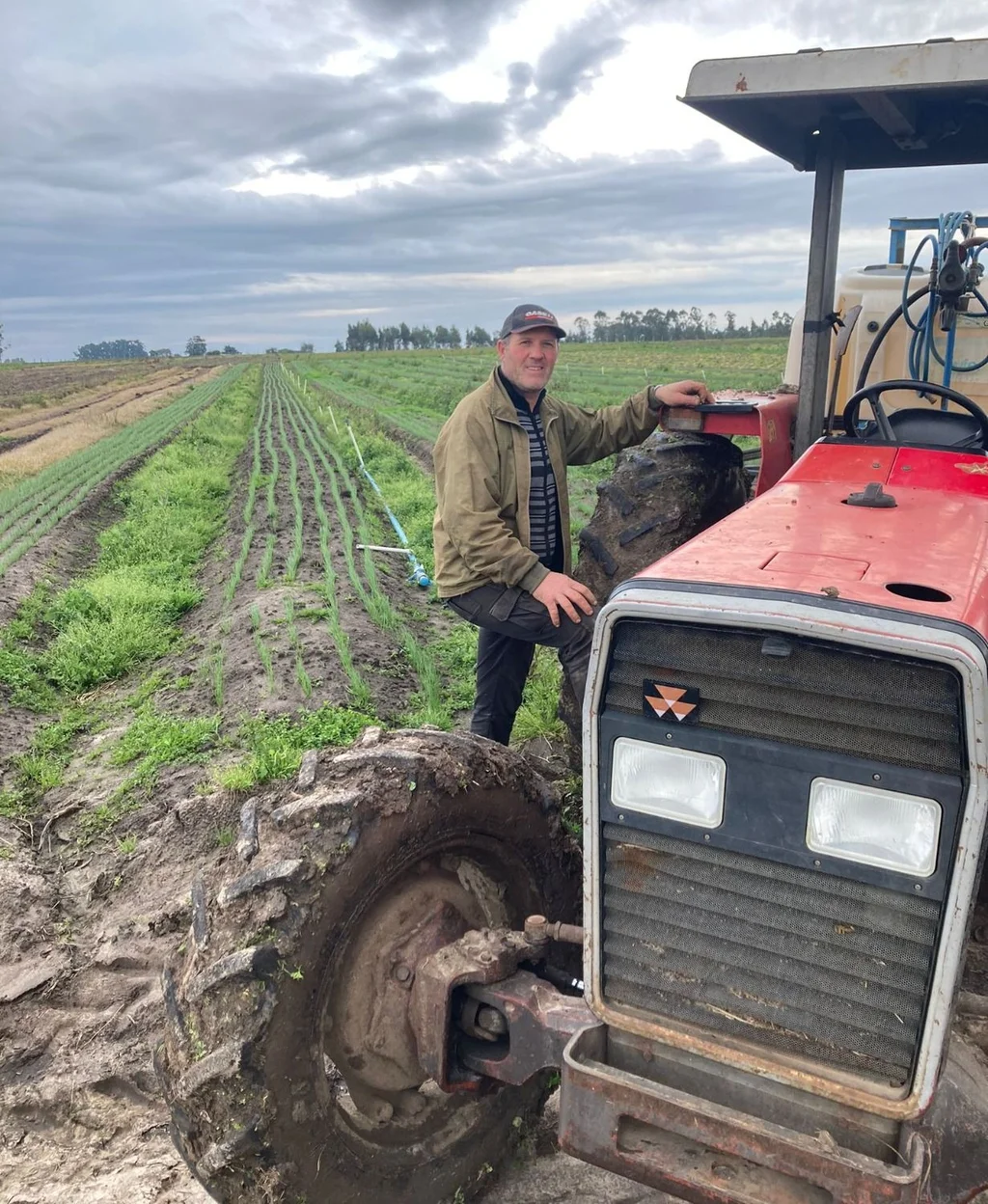
Favretto and his four brothers work in the company forged by their grandparents and parents.
Less cattle rustling, but the dogs follow
Gabriel spoke about two issues that concern producers, regardless of the item in question and in each area of the country, cattle rustling and dog attacks.
“Here in this area of Canelones, luckily, people don’t talk so much about cattle rustling anymore.We are seeing that this is quite controlled in relation to what happened three or four years ago, where every week there was talk of cases of cattle rustling,” he said.
Instead, “yes, we continue to hear that there are cases of dogs attackingthe other day I heard of some dogs that grabbed some sheep, then I heard from another neighbor that some dogs grabbed a small calf, a little heifer, “he said.
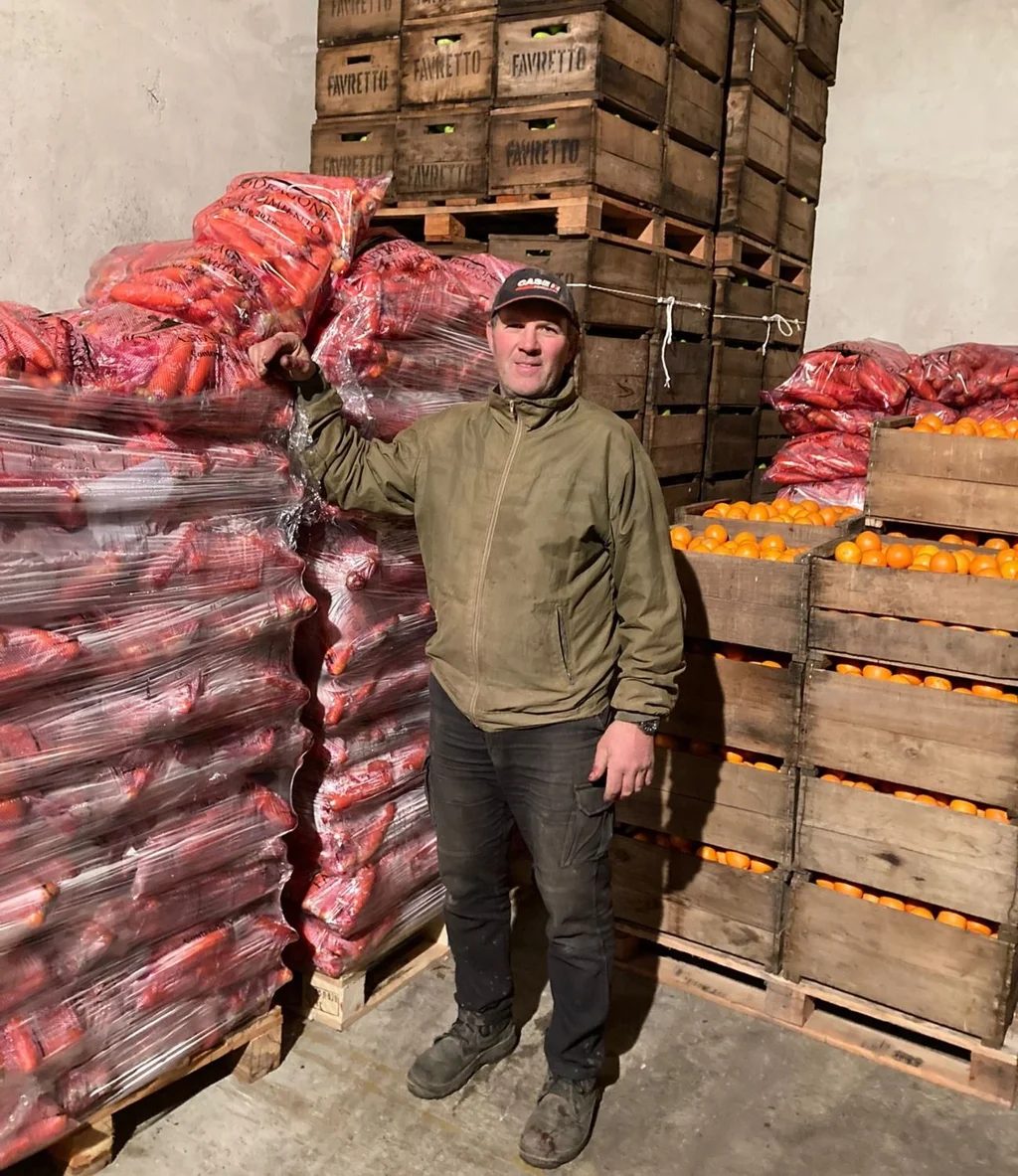
The merchandise is sold at the UAM.

